Last Updated on June 8, 2023 by Ellen
We head up the steep trail soaked in sweat and I’m thankful for a brief breeze. I smell my husband. He is ahead of me, leading the way to the village of an indigenous tribe on a Philippine island. He carries our water in a small pack on his back.
This is the first time I’ve made the climb to the upper Ati village in Malay, Aklan, in about 2.5 months.
Things look different. Earth has been busy.
My husband has been busy.
Shared wealth in the Ati world
Trail changes
The trail is overgrown on the ‘shortcuts’ we take to get up the mountain. Grass and tall weeds whack my feet and ankles. I stir up mosquitoes and they feast on my calves if I stop for a moment. So I keep going, huffing and puffing and sweating out of every pore.
Theo has said it’s about 1.5 miles up the trail to the Ati village. I go slow, because it is steep in spots, and because I have been babying my knees for some years now. He’s made this trek 100 times or more and he has the lean, fit physique to prove it.
In spots, the trail now has loosened rocks, pushed down into small piles by impromptu rivers driven my heavy rain. Yet many Ati still do the trail barefoot.
There is no paved road in this Ati world. Over streams there are narrow foot bridges made of sticks.
There is no running water, no electricity — yet.
Electric poles
We pass by long power poles that are to be connected to the main power line from the road. When these poles rise, they will lift Ati spirits. These poles will bring light to about 20 Ati nipa huts in the upper village.
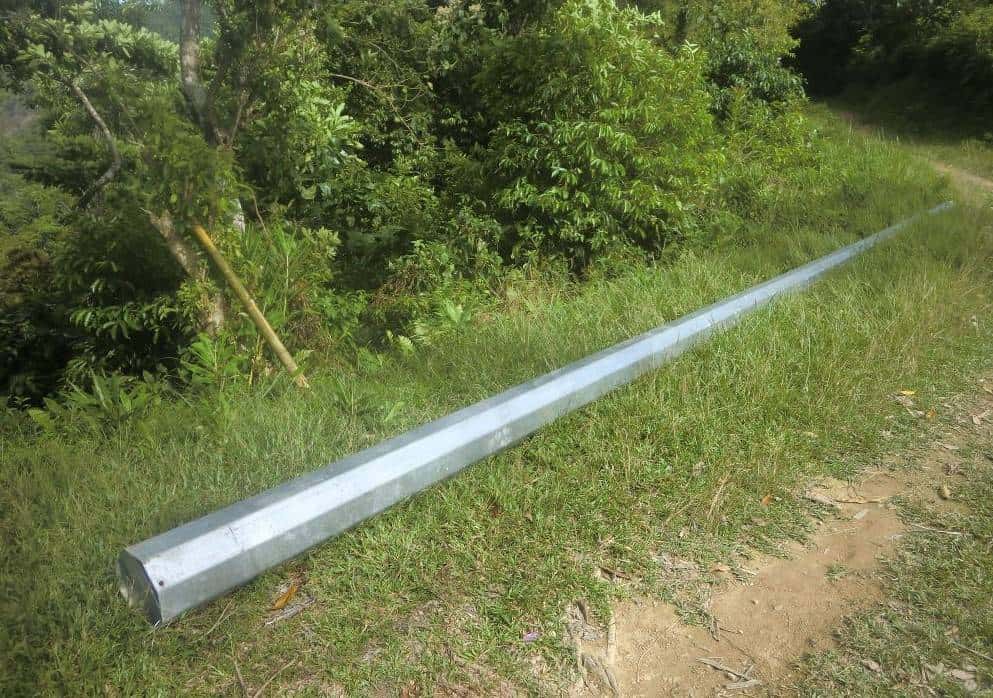
There will be light at the henhouse. There will be enough power for a water pump to improve the drinking water situation. All water must be carried by hand right now for everything – drinking, cooking, washing, bathing.
A man approaches on the trail with a sack of rice on his shoulder. Theo knows him, of course. It seems my spouse knows most of the tribe members who live in the upper village. The sack must weigh well over 50 pounds.
The man smiles and greets Theo, says hello to me.
His name is Jove, and he speaks some English. My husband has told me he is a good man, that he’s a big help with translating on the various sustainability projects we sponsor with overseas donors.
The men exchange hopeful chit-chat that the power company will connect everything soon.
The men review the electric pole positions — four poles, all lying on the ground. Two more than when Theo was last here.
He happens to owe Jove money for work pulling electric wire into position for the imminent hookup. Theo pays the man the equivalent of $5.50 in pesos. That is an above-average daily wage for an Ati man who is lucky enough to find day-labor work in a regional economy smashed by non-existent tourism for much of 2020.
I smell the men, mixed with something sweet from the jungle near the trail. Some fruit tree, maybe?
We bid farewell to Jove. We keep going.
Chicken coop
The biggest changes I see on my visit are in the chicken coop. There are hens in the house now!
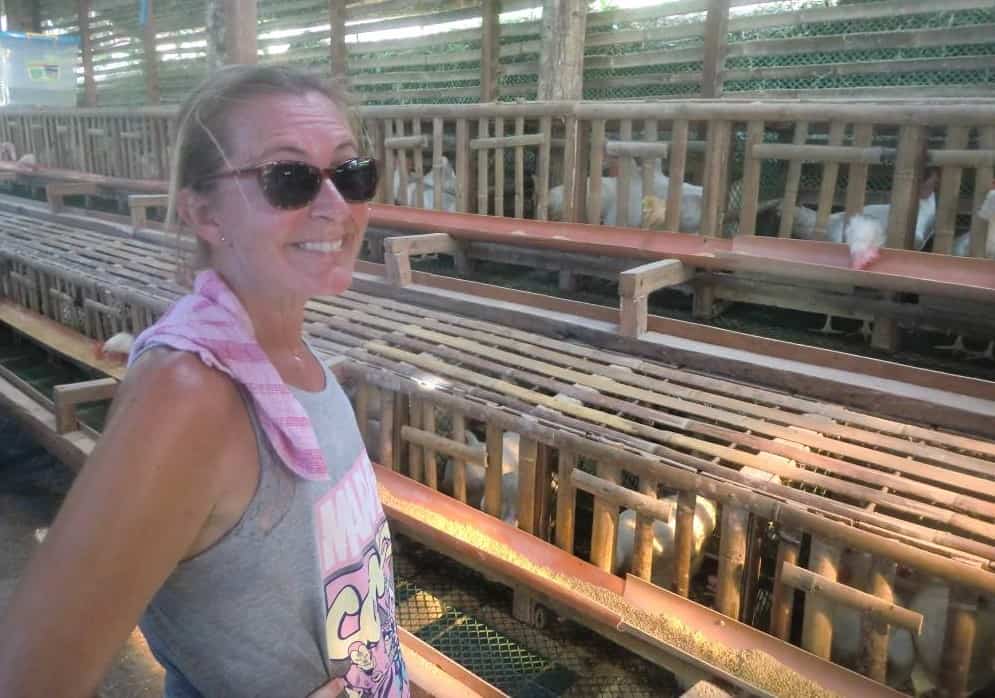
On my last visit the structure was empty, ready to welcome 140 hens to a new home. On delivery day, I only went as far as where the road ends. That’s where Ati men set out carrying crates of hens up the mountain. The weather was awful that day; the trail slick and muddy from heavy rain.
This day is sunny and breezy. To me, the hens look happy.
The henhouse is relatively quiet with egg layers clucking and pecking their feed. Two to a cage, they have plenty of room. One is quarantined for some type of illness – but that hen seems to have recovered to my untrained eye. She is preening herself.
Carla minds the henhouse today. She smooths out the feed, collects the eggs.
She also secures the house from ‘native’ chicken invaders. Native chickens have free reign outside the henhouse. They are a different type of chicken, not raised for egg-laying production. Carla captures one during our visit.
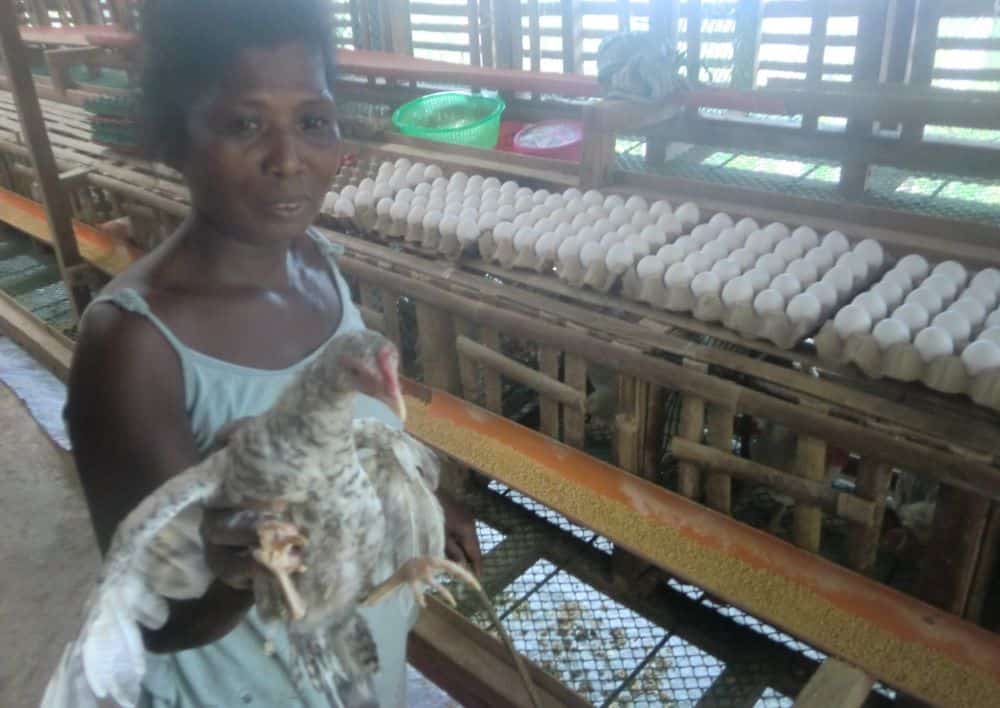
I collect an egg place it on the tray that will be brought down shops on the main road to sell to customers. In fact, Theo will buy two trays – one for our pandemic “home”, and one for the people who live on the same rental property.
Ati members who run the henhouse will not get rich. But it provides some income they otherwise would not have.
And simply, that was always the goal.
Outside the henhouse is Mercedes. She lives in a hut near the henhouse and is always nearby. She navigates the uneven hillside with a long stick as a cane. We sit in silence outside her hut and enjoy nothing special, and everything mundane.
Extremely rich
My husband and I go to the top of the upper village for a view of Boracay Island before we head back down the trail to our temporary ‘home’ at the seashore.
I feel a refreshing, steady breeze on my wet my skin and clothing. It feels so delightful I exhale loudly and proclaim the breeze divine. I breathe in deeply. Fresh. Free. Earthy.
I close my eyes and think: I will go back a structure with running water (minus the occasional shut off for repair work); a ‘home’ that is dry and spacious, with electricity (aside from brown outs and occasional black outs). I have enough money to pay my electric bill that includes so much more than a single light bulb.
There is another scent I can’t identify. It is pleasant. Almost nutty, mixed with a similar scent to basil. I think of dinner – that I will have gas to cook with, while the Ati will use the sun to dry fish or burn hand-made charcoal to boil water.
And then my thoughts slow down. My head is nearly empty, and I just am. It’s wonderfully quiet.
It is so fresh, free, and earthy up here…
I hear Theo talking. I pull myself back for this human connection.
He is saying this is the spot where he would like to put a bench. This is the spot he would like to climb up to visit once all the Ati projects are complete. We are nearing that time.
I see the view, and I realize this land makes the Ati extremely rich.
It also occurs to me: Theo has acquired extra wealth of soul for his humanitarian help up here, and that I should visit the upper Ati village more often.
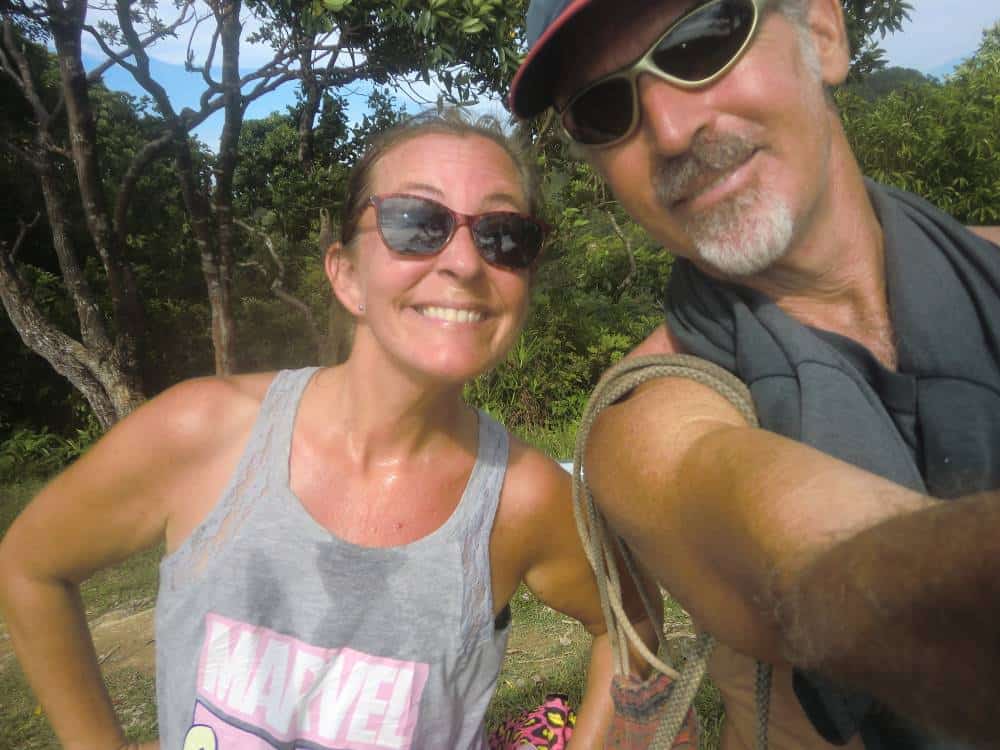
Thanks for reading “Shared wealth in the Ati world.”
What else to read about our Ati experiences:

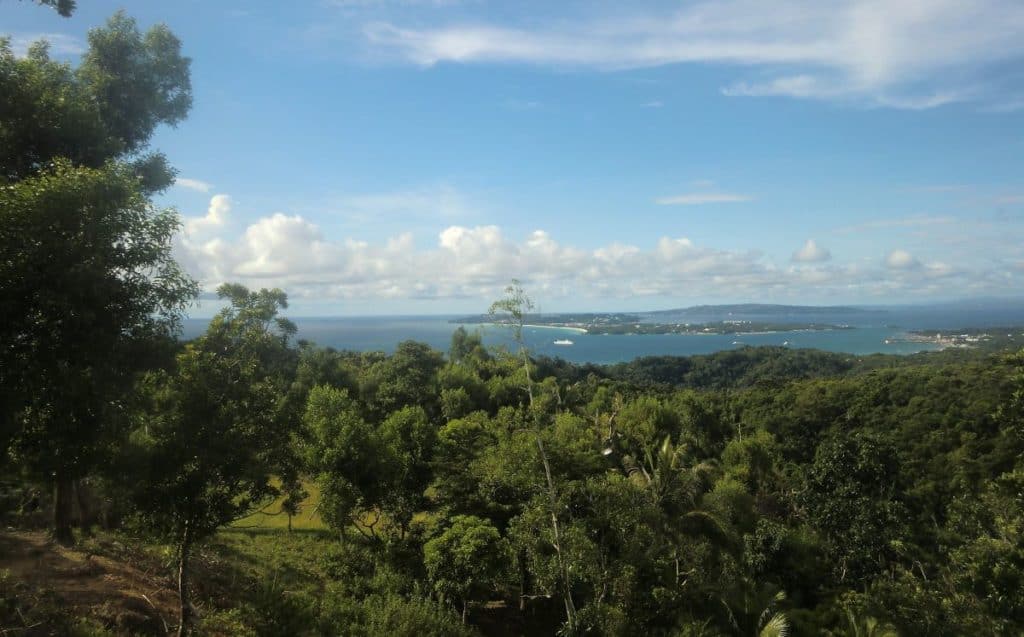
What a beautiful reflection! You both are generous and kind souls! What an inner peace you must have knowing exactly who and how you are impacting lives now and their future generations in the tribe.
And I write this as a person that has never met you except through your writings!
Many blessings wished your way here from south of Cleveland!
~D
Thank you for reading, and for your kind words 🙂